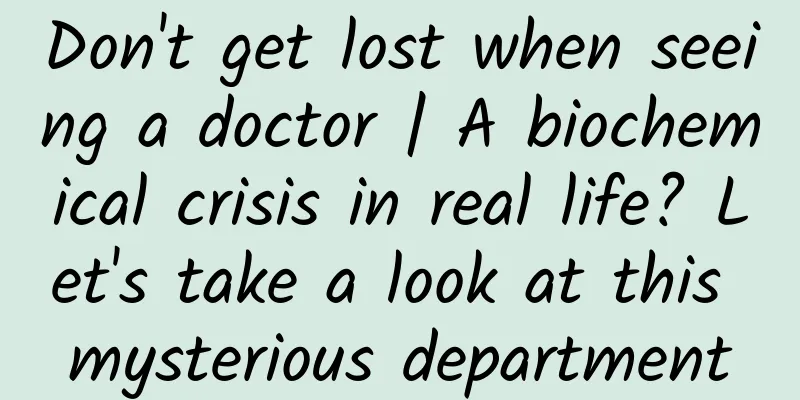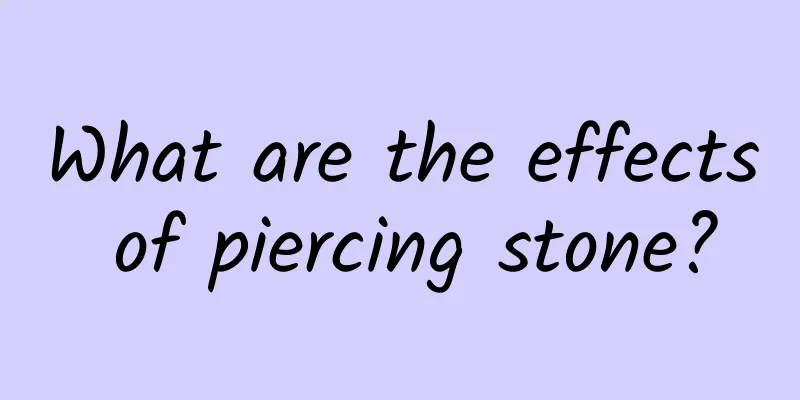The efficacy and contraindications of Gardenia

|
Gardenia is a common Chinese medicinal material, also known as yellow gardenia, gardenia, and white toad. It is the fruit of the Rubiaceae plant Gardenia. Gardenia has the effects of nourishing the liver and gallbladder, lowering blood pressure and calming the nerves, and has long been used in various recipes in clinical medicine. What are the effects and taboos of Gardenia? The effects of Gardenia 1. Remove heat and relieve restlessness: suitable for heat disturbing the heart. a. Exogenous wind-cold-heat syndrome, evil qi stagnates in the upper part of the body, causing restlessness and insomnia. b. The fire poison is raging, with high fever, restlessness, and even delirium. 2. Disperse blood and remove toxins: used for heat and toxicity in the blood. a. Blood heat and abnormal flow of blood, vomiting blood, epistaxis, and blood in urine. b. Swollen throat and red eyes, hot and toxic sores, and definite heat. 3. Clear away cold and dampness: applicable to gallbladder, liver and lower abdomen damp-heat syndrome. a. Damp-heat in the liver meridians, stagnant fire, restlessness, irritability, side pain, bitter taste in the mouth, and bad breath. b. Jaundice caused by cold and dampness, downward movement of damp-heat, and painful and astringent stranguria. Main treatment: Dispel heat and relieve restlessness, clear away heat and detoxify, promote urination, disperse blood and remove toxins. It is used to treat fever-related heartburn, jaundice, red urine, painful and astringent blood in the stranguria, vomiting and bleeding due to blood heat, swollen and painful eyes, fire poison sores, and sprains. The role of Gardenia 1. Promotes bile secretion and relieves jaundice Injection of Gardenia jasminoides water extract, rose tea extract and rose tea acid into rabbits has a significant enhancing effect on bile metabolism and a significant astringent effect on the human gallbladder. It can also significantly reduce the total bilirubin in the blood and peripheral nerve tissue fluid. It can promote the rapid metabolism of total bilirubin in the blood. 2. Promote pancreatic metabolism Gardenia jasminoides can promote pancreatic metabolism and significantly reduce pancreatic amylase, and can increase pancreaticobiliary flow. It is forbidden for patients with spleen deficiency and loose stools. 1. "Bencao Huiyan": Vomiting blood and nosebleed should be avoided if it is not caused by the outbreak of yang fire. 2. Depei Materia Medica: When the evil is on the surface and the internal fire is strong, both of them are forbidden to be used. |
<<: Contraindications of Strychnos nux vomica
>>: Remedies for Nux vomica poisoning
Recommend
Scrophulariaceae, Dendrobium, Wolfberry
The effects of Adenophora Root, Dendrobium Offici...
Will the emperor penguin on the "ice floe" be the next to "disappear"?
On the subantarctic islands, there is a kind of p...
The efficacy and function of Selaginella selaginella
Traditional Chinese medicine is very effective in...
How to make lily and poria powder
Lily and Poria powder is a traditional food that ...
The efficacy and function of bald leaf red bean tree
Many people know that the bald-leaf orchid tree h...
Why do I feel uncomfortable if I don’t drink coffee for a day?
Author: Hao Yun Reviewer: Zhong Kai, Director of ...
What was Qin Shi Huang's name? Ying Zheng? Wrong!
Excerpted from: "Inside and Outside the Clas...
Does it really help to lie down with your eyes closed when you can't sleep?
Addendum 1: Although lying down with your eyes cl...
What is the drinking method of black wolfberry?
Some people know that wolfberry is the common red...
Mysterious ultra-high energy gamma rays, the oldest light in the universe, what is the connection between the two?
Ultra-high-energy gamma rays may reveal how the u...
Is it better to drink more water in summer? Why did drinking water cause trouble?
The summer heat has finally begun. In order to av...
Sand control is too difficult? Try mechanics! Scientists use original mechanical principles to turn sand into soil
If someone tells you Just sprinkle a layer of &qu...
The efficacy and function of Polygala indigofera
Polygala tenuifolia is a traditional Chinese medi...
There are several pictures of wild bitter vegetables
Dandelion is a non-toxic wild plant with both med...
Poincare's Special Theory of Relativity Part 1: Discovery of the Lorentz Group
|Author: Jin Xiaofeng (Department of Physics, Fud...









